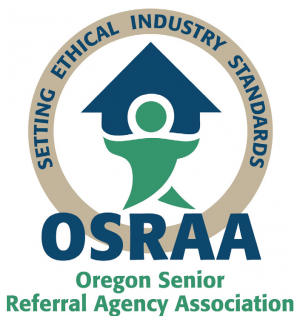Senior Care – The Benefits of Memory Care for Seniors & Making the Right Choice
Senior Care is getting more important. People are living longer, and memory care is becoming more important. While senior care and living longer is good news, the sad fact is that the older we get, the more likely our faculties are to decline. As we age we may require more care. We may receive some kind of specialized and ongoing care as seniors. The fact is, according to the U.S. Department of Health and Human Services, about 70 percent of adults over 65 will need some kind of long-term care at some point in their golden years.
The type of care we hear about most commonly is assisted-living. But there is another, specialized type of assisted-living care that may be of interest to a certain segment of the population, called memory care. Read on to learn more about this special type of senior living situation, and discover if memory care is the right fit for you or your senior loved one.
What Is Memory Care?
Memory care is a specific type of assisted living situation designed to cater directly to those people suffering from Alzheimer’s or Dementia, which are diseases that affect the brain and the memory. Seniors who are receiving memory care join “Memory Care Units,” sometimes also called Special Care Units or Alzheimer’s Care Units, where they can receive the special attention they need.
How Is Assisted Living Different From Memory Care?
Often, memory care implies a higher standard of care than the typical assisted living arrangement. People in the early stages of Alzheimer’s may be able to function effectively in a typical assisted living environment. These are people who can still function independently in many ways, but may need a little help with some day-to-day activities or tending to their medical needs.
A standard assisted living scenario may find an individual living by themselves in a private studio or apartment, or with a roommate, with staff available around the clock for assistance and emergencies.
A memory care unit, however, is more appropriate for an Alzheimer’s patient whose disease or condition is a little bit more advanced. These units may also be private or shared, and often are part of a separate wing in an assisted living facility. Residents of these units have 24-hour care and supervision by a staff of more highly-skilled and trained professionals with specific knowledge of the needs of Alzheimer’s and dementia patients.
These memory care units often also have exercises and activities designed specifically to stimulate the memory and to slow the progression of the disease, such as music and games.
What Are Some Specific Differences Between Assisted Living Units and Memory Care Units?
If you are moving a loved one from a traditional assisted living unit to a memory care situation, there are some likely differences for you to be prepared for. For one, memory care units are often more secure. It is much easier for those with Alzheimer’s or dementia to wander off and get lost, so more precautions are put into place to prevent this from taking place.
The way eating is handled in memory care units is also often a little bit different. Food preparation takes place in a group setting, because there are no kitchens in individual apartment units as this could increase stress as well as lead to kitchen-related accidents.
You will often find fish tanks in the dining room as swimming fish are thought to stimulate the appetite, which is often a problem in Alzheimer’s sufferers. Other unique food experiences, such as creating contrast between food color and plate color, are common in these units for this reason.
In general, you should expect greater safety measures, accommodations for issues such as confusion, anxiety, and appetite loss, and more highly trained and involved staff in a memory care unit than you might find in standard assisted living.
Do You Know Someone in Need of Memory Care? Golden Placements Can Help!
If you are thinking about memory care in the Portland or Northern California areas, Golden Placements can help. We specialize in finding exactly the right living facility for seniors at no cost to you.
We have a network of care facilities that we know can provide a high level of the kind of care that seniors may need and can match up your loved one with a great retirement community, assisted living facility or memory care unit depending upon their needs.
Diane Delaney, Placement Specialist Extraordinaire

Delaney is the founder of Golden Placement Services. She began this business with a healthy dose of compassion for helping families make educated decisions regarding senior placement. Focused to relieve stress in uncertain senior housing crucial moments. Diane brings about loving change of lifestyle with grace. Additionally, Diane is an accomplished executive manager, Director of Operations in senior housing. Emphatically, she enjoys sharing her experience. Diane enjoys writing about the full spectrum of the transition process for seniors and family members. Read more from Senior Placement Specialist Diane: Ultimate Senior Living Resource Guide >>
Stephanie Brubaker, Senior Placement Specialist

steph.goldenplacements@gmail.com | 971-263-8533 Stephanie got her start working as an administrator for Golden Placement Services. It served her well as she worked in sales and marketing while living in Austin, TX. Now that she is back in Oregon she’s excited to take the plunge and work alongside the Golden Girls as a placement specialist. She feels lucky to receive her training from experienced mentors, her mother Diane. Stephanie looks forward to being a part of the family whose main objective is to help your family through senior housing options with empathy, integrity, and compassion.
Posted onTrustindex verifies that the original source of the review is Google. Golden Placement Services answered! It’s really difficult to have to place an aging parent into a facility, but our family knew it was time. So I did some research, called 15 facilities, and managed to get on one wait list. I also called two companies that assist with finding homes, and they said they could not help. We were concerned we wouldn’t find a place, and if we did, it could be a very poor choice for our dad. Then I was given Golden Placement Services phone number and I spoke with a lovely woman named LaVona. That’s when everything changed! LaVona listened to our family’s needs, was understanding, and within days, she had arranged places for us to visit. How she found them, I don’t know, but she did! She met us there, listened some more, answered questions, and offered sage advice. We will forever be grateful for Golden Placement Services help in making this very tough decision. We absolutely know that my dad is in the right place to spend the rest of his life. And, we wouldn’t have that assurance today, had we not been connected with their wonderful service! They have blessed us greatly and we are sharing their information with others we know who are going through the same process.Posted onTrustindex verifies that the original source of the review is Google. Our family is so grateful for Diane and her company. They have helped us, two times find placements for our family members. We are now working now to find a great situation for another elderly family member.. Best thing, THEY CARE about each client and their wellbeing... THANK YOU, DianePosted onTrustindex verifies that the original source of the review is Google. What a great resource for seniors in this area. Great, honest work. Very knowledgeable.Posted onTrustindex verifies that the original source of the review is Google. They were very helpful and while being professional, kind and caring. They were thorough in trying to find the best arrangement for our situation and followed-up to make sure client's new arrangements were satisfactory. I highly recommend them.
-
General terms for dementia:
“dementia,” “Alzheimer’s,” “cognitive impairment,” “memory loss,” “thinking difficulties”.
-
Types of dementia:
“Lewy body dementia,” “vascular dementia,” “frontotemporal dementia,” “mixed dementia,” “dementia with Lewy bodies”.
-
Related topics to dementia:“dementia care,” “dementia support,” “dementia diagnosis,” “dementia symptoms,” “dementia research”.
- compulsive hoarding
- senior fall prevention
- elderly fall risk
- fall proofing home
- home safety for seniors
- senior care
- assisted living
- nursing home
- senior placement
- in-home care
- occupational therapy
- physical therapy
- geriatric care
- senior living options
- fall prevention tips
- elderly safety
- senior home safety
- fall risk assessment
- senior care services
- senior living communities
- aging in place
- Elderly Care Services – Senior Placement Services – Assisted Living Services
Senior Living Referral Services Retirement Homes & Senior Living Communities, Assisted Living Services, Senior Resources



